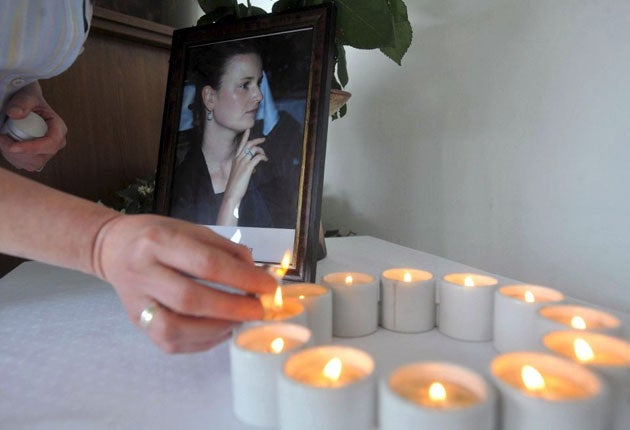Missing plane was 'flying too slow' to avoid Atlantic storm
Messages said to show Airbus had depressurised and was diving into ocean

New evidence suggests that the doomed Air France Airbus was flying too slowly for safety just before it fell from the sky over the ocean late on Sunday night.
French investigators believe the aircraft adopted the "wrong speed" before it flew into a bank of 100mph storms in the south Atlantic between Brazil and Senegal, according to the newspaper Le Monde.
Four automatic, emergency messages transmitted by the Airbus A330-200 in the space of four minutes, published by Brazilian newspapers, suggest a catastrophic collapse of the aircraft's main and back-up electrical systems. The last message, transmitted at 11.14pm Brazilian time – "cabine en vitesse verticale" – suggests that the cabin depressurised and the aircraft fell apart in mid-air.
The French agency investigating the crash said last night that the messages were "incoherent" about the plane's speed. But aviation experts said the revelations threw some new light on the mystery of what happened to flight AF447 and its 228 passengers and crew. However, they pointed out that it was difficult to separate symptoms and causes. Was the aircraft flying slower than the recommended speed because it was already in difficulty? Could low speed alone have permitted a modern aircraft to be torn apart by a tropical storm?
Le Monde said yesterday that the Airbus company intended to issue a "recommendation" to all other users of the A330-200 that the engines must be maintained at "optimum power" in "difficult weather". However, both Airbus and the French air accident investigation agency said no such statement was imminent.
Earlier, Brazilian officials dismissed claims that the aircraft, flying from Rio de Janeiro to Paris, had exploded in midair. They said a large slick of aviation fuel found in the ocean close to other debris from the Airbus suggested that the aircraft may have fallen apart but it had not exploded in flames. French officials have said that they cannot rule out a terrorist attack but that this appears extremely unlikely.
As the French Foreign Minister, Bernard Kouchner, attended a Mass for the victims of the crash in Rio yesterday, ships from both countries were converging on the presumed crash site about 400 miles north-east of the Fernando de Noronha islands off Brazil's northern coast. Until the debris, and possibly the "black box" flight recorders, are examined, the fate of the aircraft is likely to remain a mystery. Brazil's Defence Minister, Nelson Jobim, said wreckage, ranging from a life jacket to a seven-metre-wide section of fuselage, was scattered over 140 miles of ocean.
A French naval ship carrying robot submarines, the Pourquoi Pas, is expected to reach the area late next week. The submarines will attempt to locate and retrieve the aircraft's flight recorders.
Brazilian newspapers yesterday published details of the aircraft's final messages. The pilot sent a signal at 11pm Brazilian time, saying he was entering a zone of violent storm clouds. Ten minutes later, the aircraft sent an automatic message saying the auto-pilot had been switched off, followed in rapid succession by pre-programmed messages saying that the computerised navigation system had moved to alternative power and other key systems had failed.
At 11.14pm the Airbus sent the final automatic message – "cabin at vertical speed" – which suggested the jet had depressurised and was diving into the ocean or falling apart.
Patrick Smith, a US aviation analyst, told the Associated Press news agency the messages suggested the aircraft's electrical systems may have been crippled by lightning. "What jumps out at me is the reported failure of both the primary and standby instruments," he added. "From that point the plane basically becomes unflyable."
Subscribe to Independent Premium to bookmark this article
Want to bookmark your favourite articles and stories to read or reference later? Start your Independent Premium subscription today.

Join our commenting forum
Join thought-provoking conversations, follow other Independent readers and see their replies